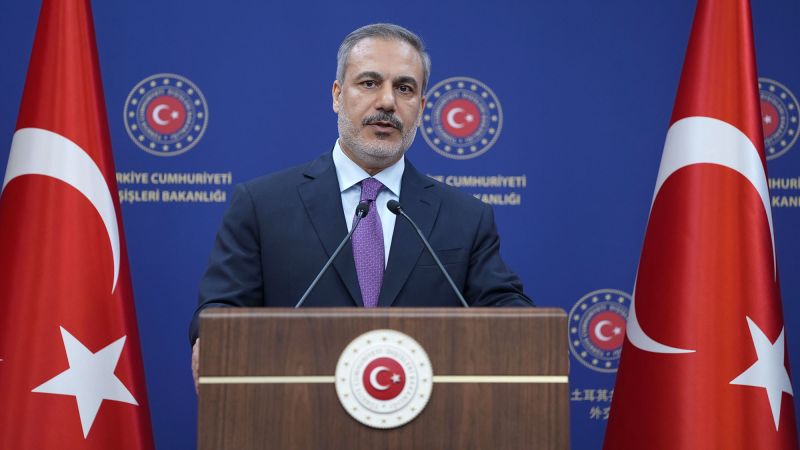Turkey has imposed restrictions on exports to Israel following accusations from the Turkish foreign minister that Israel denied a request to airdrop aid to Gaza. The Turkish Ministry of Trade condemned Israel’s actions, accusing them of preventing access to basic necessities for the people of Gaza. As a result, Turkey has placed a ban on the export of 54 products that could potentially be used for military purposes or construction. The ban will remain in effect until Israel declares an immediate ceasefire in Gaza and allows a sufficient flow of humanitarian aid.
The list of banned items includes steel, aluminum, cement, and electrical cables. The Turkish foreign minister announced during a press conference in Ankara that Turkey would be taking a series of measures against Israel in response to their denial of aid to Gazans. Israel has not responded to these allegations made by Turkey. In retaliation, Israeli Foreign Minister Israel Katz criticized Turkish President Recep Tayyip Erdogan, accusing him of sacrificing the economic interests of the Turkish people in support of Hamas. Israel plans to ban Turkish products in response and seek support from allies to impose sanctions on Turkey.
Turkey is one of the major donors of aid to Gaza, along with the United Arab Emirates. The main opposition party in Turkey, the Republican People’s Party (CHP), believes that the export curbs announced by the Turkish government are not strong enough. The CHP criticized the government for continuing to trade with Israel despite publicly condemning their attacks on Gaza. They called for an immediate halt to business with a country that supports attacks on Gaza and overlooks injustice and oppression.
The strained relationship between Turkey and Israel has escalated due to the recent events in Gaza. Turkey’s decision to restrict exports to Israel is a direct response to Israel’s denial of an aid operation to Gaza. The ban on certain products serves as a diplomatic move to pressure Israel into allowing humanitarian aid to reach Gaza. The conflict between the two countries continues to be influenced by political decisions and alliances, with both sides taking measures against each other in response to ongoing tensions.
The international community is closely watching the situation between Turkey and Israel, with concerns about the impact of escalating tensions on the region. The involvement of other countries, such as the United States, in imposing sanctions on Turkey further complicates the situation. The ban on exports and the threat of additional economic measures indicate a deepening rift between Turkey and Israel, with potential consequences for trade and diplomatic relations. The ongoing conflict in Gaza has further strained relations between these two key Middle Eastern countries, with implications for regional stability.


